- Teacher
Anne-Maarit Majanoja
University of Turku Moodle
Результаты поиска
- Teacher
Anne-Maarit Majanoja
- Teacher
Heikki Kauppi
- Teacher
Stefan Emet
Tavallisissa populaatiomalleissa oletetaan, että lajin asuinalue on suuri yhtenäinen alue, jossa elinolosuhteet ovat kaikille yksilöille samanlaiset. Metapopulaatio taas koostuu useista paikallisista populaatioista, joiden välillä on muuttoliikettä. Kurssilla käsitellään dynaamista peliteoriaa erilaisissa metapopulaatiomalleissa, sovelluksena muun muassa muuttoliikkeen evoluutio.
Kurssiavain: peliteoria
- Teacher
Kalle Parvinen
Peliteoriassa tarkastellaan yksilöiden välistä strategista kanssakäymistä, kun vaihtoehtojen hyödyt ja haitat riippuvat muiden yksilöiden valinnoista. Niin sanotuissa matriisipeleissä pelaajat valitsevat strategiansa äärellisestä määrästä vaihtoehtoja, ja pelaajan mahdolliset hyödyt voidaan esittää matriisimuodossa,missä matriisin rivi vastaa omaa valintaa ja sarake vastapelaajan tekemää valintaa. Sen sijaan dynaamisessa peliteoriassa hyödyt eivät ole vakioita, vaan määräytyvät mekanistisen mallintamisperiaatteen mukaan muodostetusta dynaamisesta systeemistä, esimerkiksi differentiaaliyhtälöryhmästä. Dynaamista peliteoriaa sovelletaan kurssilla myös luonnonvalinnasta johtuvan evoluution matemaattiseen mallintamiseen. Tarkasteltava dynaaminen systeemi on tutkittavan lajin (tai lajien) ekologiaa kuvaava matemaattinen malli, joka siis kuvaa populaation yksilöiden lukumäärän muuttumista ajan kuluessa. Tässä yhteydessä strategia on yksilön käyttäytymistä kuvaava perinnöllinen ominaisuus. Muun muassa mutaatioiden seurauksena populaation yksilöiden strategiat ovat erilaisia. Jotkut strategiat menestyvät paremmin kuin muut nykyisessä ympäristössä, ja saattavat syrjäyttää muut strategiat, kunnes taas seuraava mutaatio tapahtuu. Adaptiivinen dynamiikka tutkiikin populaation strategioiden muuttumista pitkän ajan kuluessa luonnonvalinnan seurauksena.
- Teacher
Kalle Parvinen

- Teacher
Jussi Mertsola
Luento-opetus 12 t, ryhmäopetus 12 t, harjoitustehtävät, itsenäinen työskentely (harjoitustyö(t) + portfolio), kirjallisuuden lukeminen.
Luennot 17.00-20.15: ke 31.3., ma 4.4. & ke 6.4.
Pienryhmä 1: ma 11.4, ti 19.4. & ti 26.4.
Pienryhmä 2: ke 13.4., ke 20.4. & ti 3.5.
Ryhmäopetuskertojen jako sovitaan ensimmäisellä opetuskerralla.Huom! Mikäli ilmoittaudut tähän yksittäiseen jaksoon (ei opintokokonaisuuteen), kokonaishinta on 78 €. Maksu muodostuu Turun avoimeen yliopistoon maksettavasta 20 € opintomaksusta sekä opiston 58 € kurssimaksusta. Tarkemmat ohjeet avoimeen yliopistoon ilmoittautumisesta ja siihen liittyvästä verkkomaksusta saat opistosta sähköpostiisi noin viikkoa ennen kurssin alkua. Mikäli et saa tuolloin ohjetta, tarkista sähköpostisi roskapostit ja ota tarvittaessa sen jälkeen yhteyttä avoin.yliopisto(at)omnia.fi. Opinnot ovat Turun yliopiston tutkintovaatimusten mukaista opetusta.
Opintojakso toteutetaan lähtökohtaisesti lähiopetuksena, mutta pandemiatilanteen niin vaatiessa muutetaan verkko-opetukseksi.
- Teacher
Juha Rautio
EAPS 1 Autumn 2025 KIEN8904-3021 English: Academic and Professional Skills I 18.09.2025 - 04.12.2025
This course is for Open University Students and it is the first part of a course that emphasizes academic and professional English.
This is a Zoom course that will meet once per week during the autumn term.
The first lesson on 18.9 will meet 17:15-20:30. The remaining lessons will be 17:15-19:45.
The final lesson is on 4.12.
- Teacher
Patrick Gallagher
This integrated skills course supports students in their academic studies. Students develop their abilities in reading, writing, listening and speaking in addition to the special discourse and terminology of their fields, and create a portfolio of work to showcase these skills. Emphasis is placed on active student participation.
By the end of the course students should:
- be able to analyse an English academic text and summarise the main ideas orally and in writing;
- recognize and use appropriate style in academic writing;
- be able to take notes from books and lectures; and
- be able to take an active part in discussions.
This will be a contact course with some Zoom lessons
- Teacher
Patrick Gallagher
Learning outcomes
This course is designed to develop students’ awareness of academic and professional communication and focuses on foundational skills needed to communicate effectively in academic contexts and generate academically sound work. Students will develop their academic skills (e.g. search strategies and active listening), and language skills (e.g. vocabulary development and communicative competence).
- Teacher
Marise Lehto
- Teacher
Jeremy Palmer
- Teacher
Jeremy Palmer
- Teacher
Jeremy Palmer
- Teacher
Jeremy Palmer
- Teacher
Jeremy Palmer
- Teacher
Jeremy Palmer
- Teacher
Jeremy Palmer
This is the shared Moodle space for English: KIEN2161-3049/KIEN2161-3052 Academic and Professional Skills for Humanities I, groups 2 (Comparative literature and Finnish literature) and 5 (Media studies, Musicology, and Art History). These groups are co-taught by Henna Ala-Kutsi and Tytti Kim.

- Teacher
Tytti Kim
- Teacher
Jeremy Palmer
Students develop their abilities in reading, writing, listening and speaking in addition to the special discourse and terminology of their fields, and create a portfolio of work to showcase these skills. Emphasis is placed on active student participation. By the end of the course students should:
– be able to analyse an English academic text and summarise the main ideas orally and in writing
– be more aware of the style that is appropriate in academic writing
– be able to take notes from books and lectures
– be able to take an active part in discussions
- Teacher
Kelly Raita
Learning outcomes
This course focuses on skills needed to communicate effectively in academic contexts and generate academically sound work. Students will further develop their academic skills (e.g. active reading and synthesizing), and language skills (e.g. discussion and professional communication).
On completion of KIEN2162 English: Academic & Professional Skills II for Humanities, students will be better equipped to:
- write an academic paper using appropriate style and referencing
- work with peers and present an academically sound argument related to their field of study
- practise academic and professional communication skills
- engage critically with texts (written and oral) and concepts
- follow a process approach in the production of academically sound work
- Teacher
Patrick Gallagher
This is the Moodle space for Tytti Kim's EAPS II for Education for early education teacher students (Autumn 2023, VO22a-d, VO22avoin, Rauma campus).

- Teacher
Tytti Kim
This generic EAPS I Moodle space is meant for teachers to share their EAPS I related materials with the team. No student access.
- Teacher
Maria Broholm
This English course
(3 credits) is offered to the 1st-year students in groups KS24a, KS24b, and KS24c, in the Craft,
Design and Technology Teacher Education programme (OKL RAUMA), in the spring term of 2025.
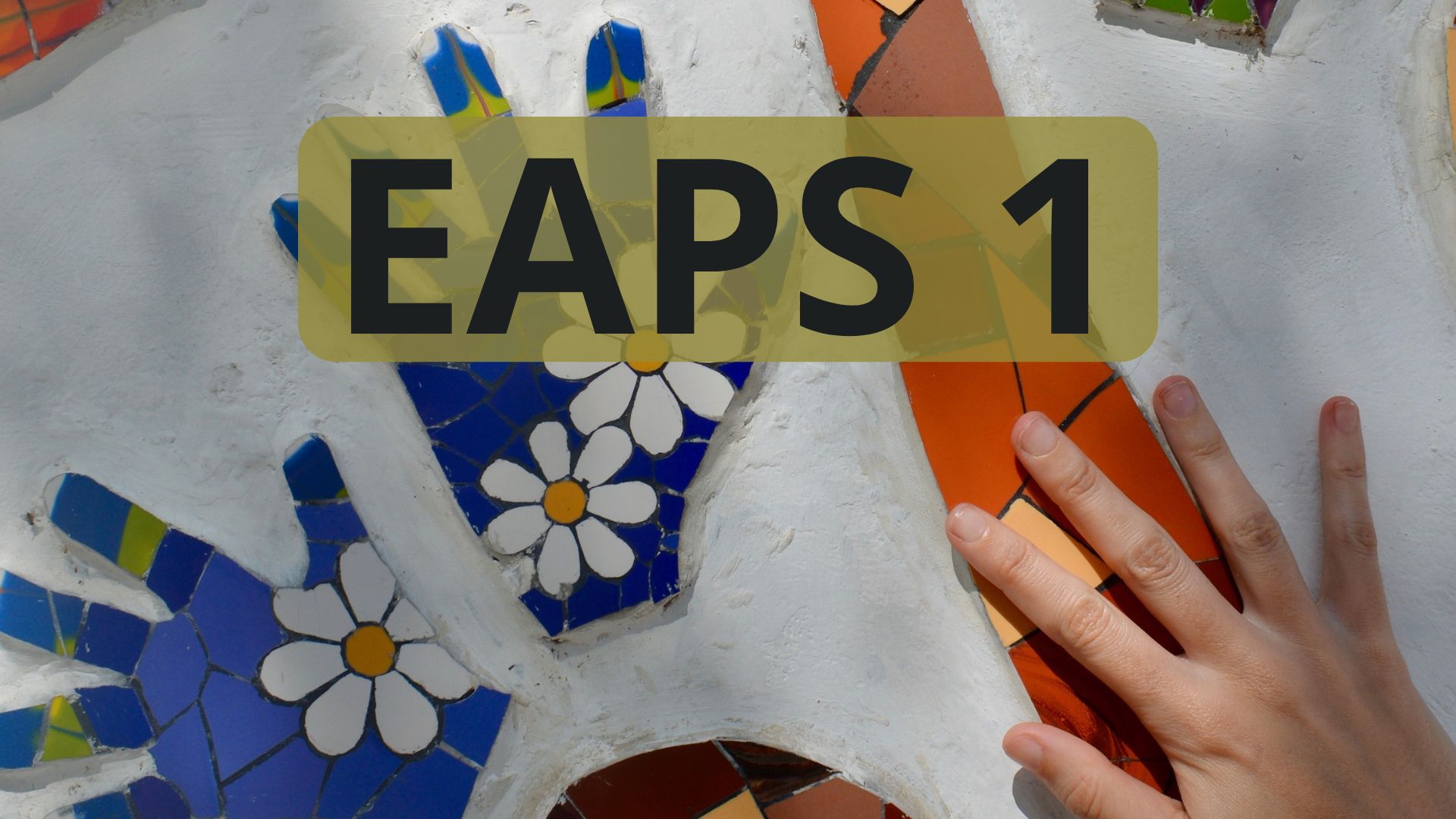
- Teacher
Maria Broholm
This English course (3 credits) is offered to 2nd-year students in Class Teacher Education programme in groups LOR22a and LOR22b (OKL Rauma), in the autumn term 2023.
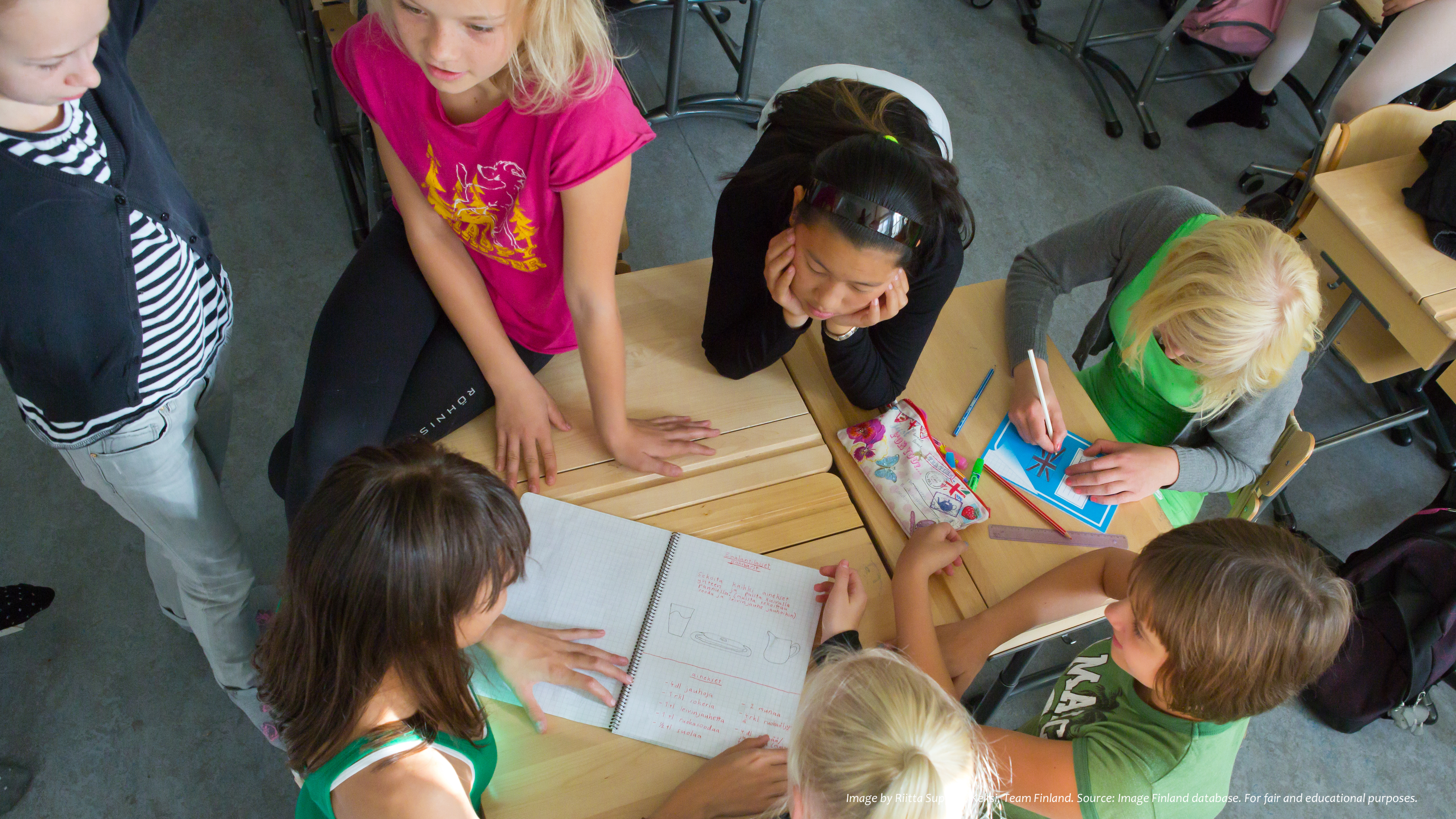
- Teacher
Maria Broholm
This English course (3 credits) is offered to 2nd-year students in Class Teacher Education programme in groups LOR23a and LOR23b (OKL Rauma), in the fall term 2024.
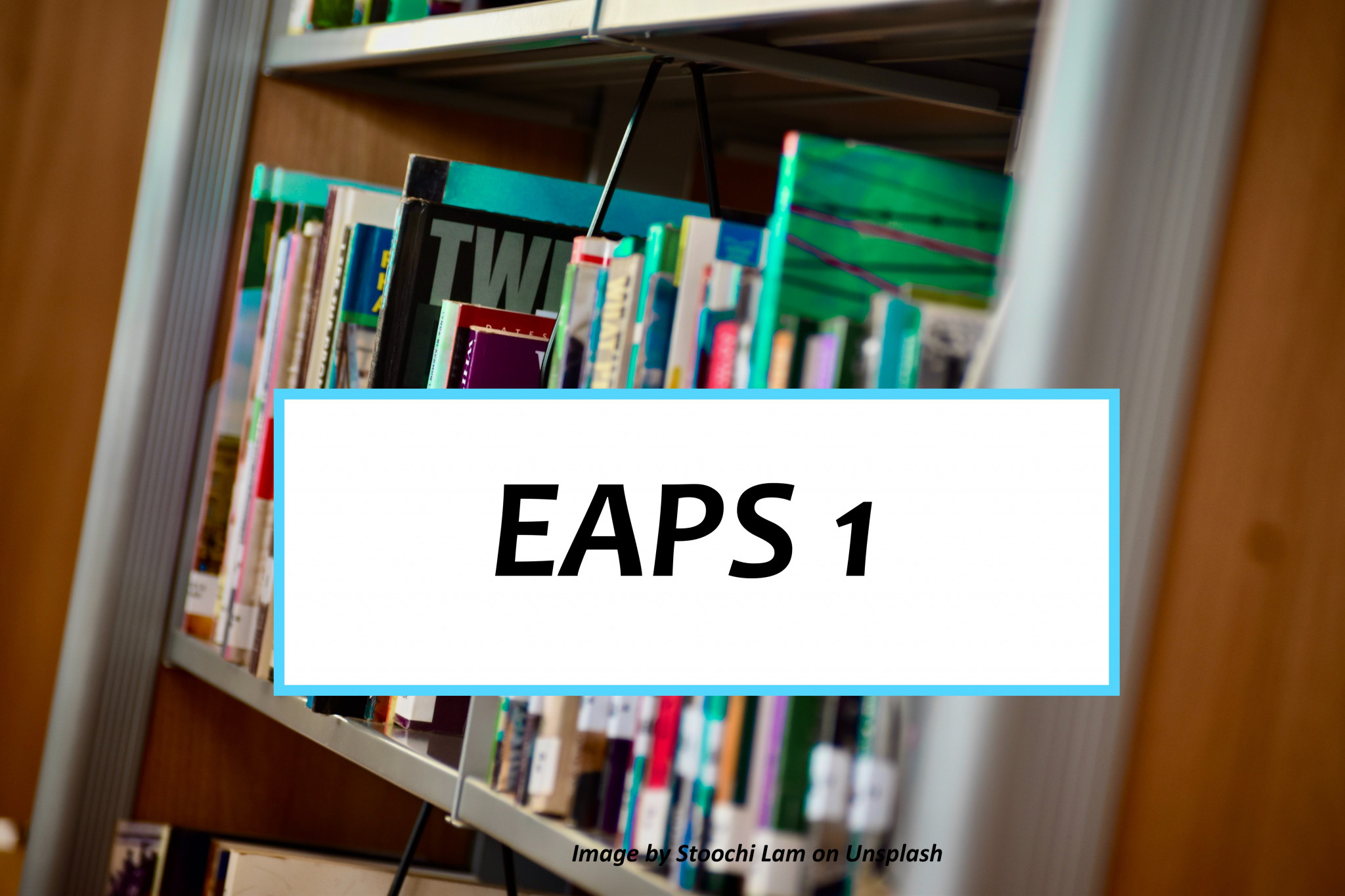
- Teacher
Maria Broholm

- Teacher
Maria Broholm
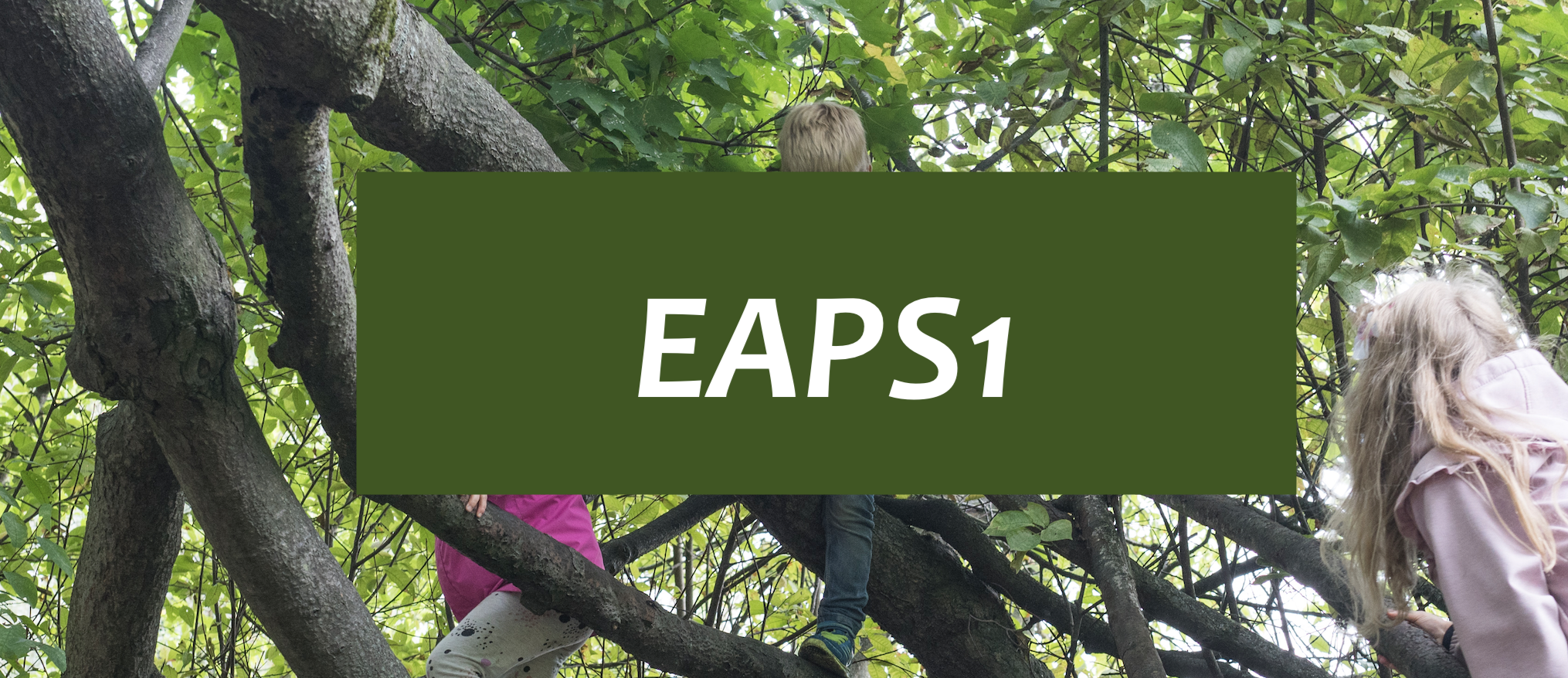
- Teacher
Maria Broholm
This English course (3 credits) is offered to the 1st-year students in group VO24a in the Early Childhood Teacher Education programme (OKL RAUMA), in the spring term of 2025.

- Teacher
Maria Broholm
This English course (2 credits) is offered to 3rd-year students in the Primary Teacher Education degree programme in the group BApte22 (OKL Rauma), in the fall term 2024.
This course is offered to students who have completed KIEN2761 English: Academic and Professional Skills for Education I. Please first enroll on Peppi.
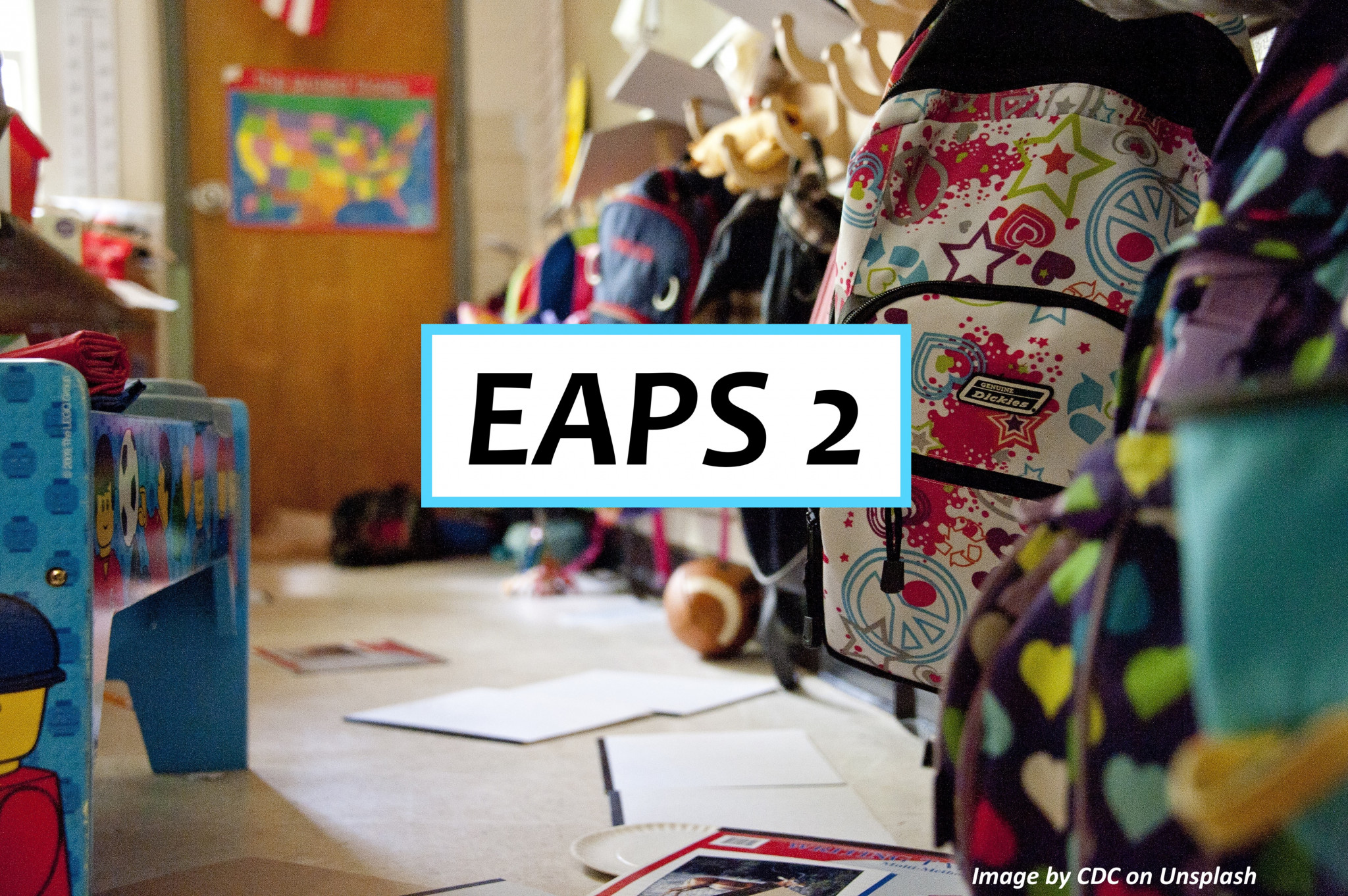
- Teacher
Maria Broholm
This English course (2 credits) is offered to 2nd-year students in Craft, Design and Technology Teacher Education programme in groups KS22a, KS22b and KS22c (OKL Rauma), in the autumn term 2023.
This course is intended for students who have completed KIEN2761 English: Academic and Professional Skills for Education I. Please first enroll on Peppi.

- Teacher
Maria Broholm
This English course (2 credits) is offered to 2nd-year students in Craft, Design and Technology Teacher Education programme in groups KS23a, KS23b and KS23c (OKL Rauma), in the fall term 2024.
This course is offered to students who have completed KIEN2761 English: Academic and Professional Skills for Education I. Please first enroll on Peppi.
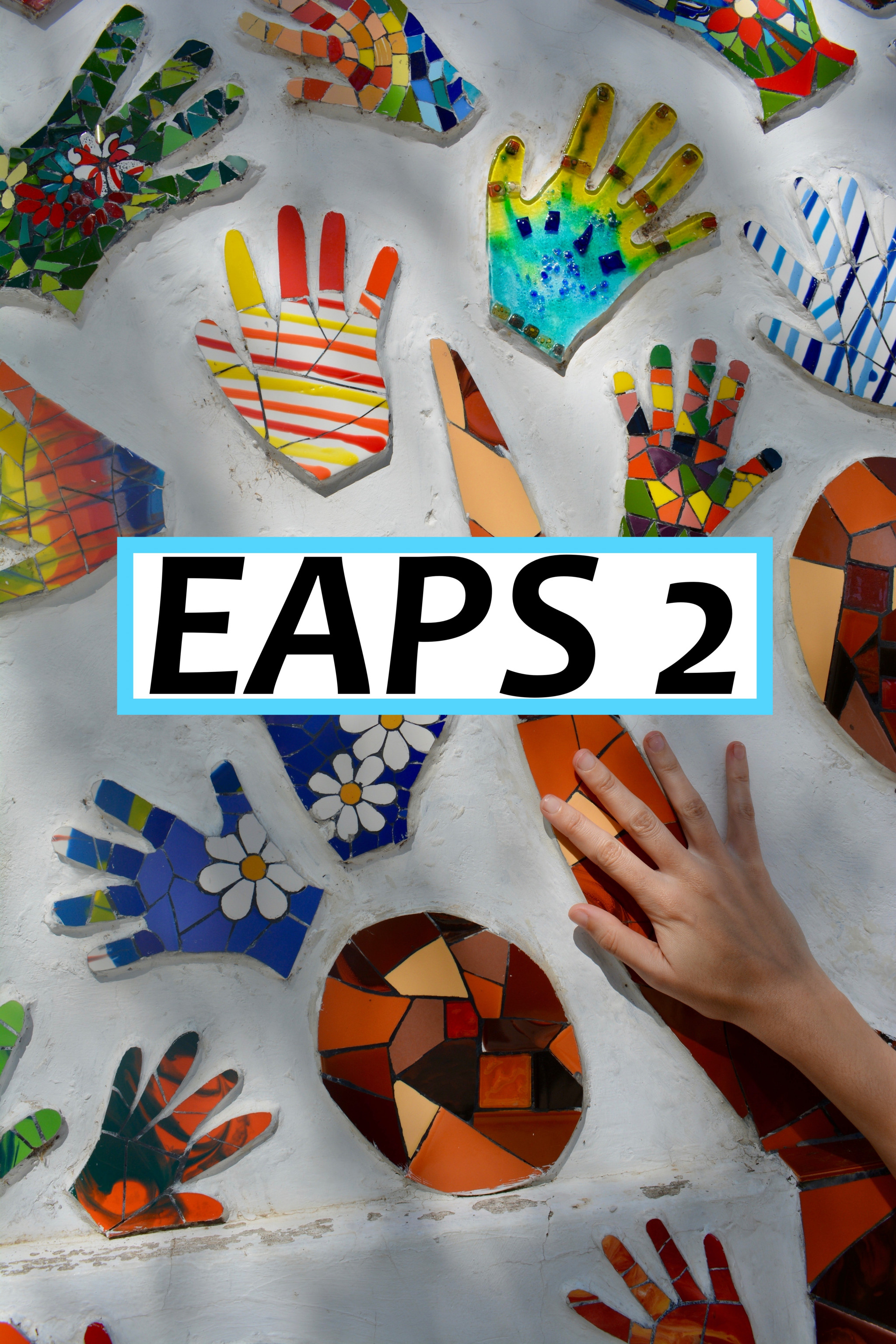
- Teacher
Maria Broholm
This English course (2 credits) is offered to 2nd-year students in Early Childhood Teacher Education programme in groups KS24a, KS24b, KS24c (OKL Rauma), in the fall semester 2025.
This course is intended for students who have completed KIEN2761 English: Academic and Professional Skills for Education I. Please first enroll on Peppi.
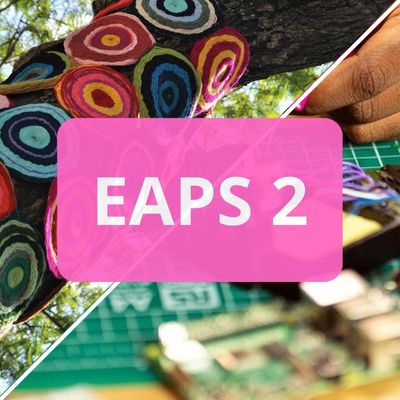
- Teacher
Maria Broholm
This English course (2 credits) is offered to 3rd-year students in Classroom Teacher Education programme in groups LOR21a, LOR21b, LOR21c (OKL Rauma), in the autumn term 2023.
This course is intended for students who have completed KIEN2761 English: Academic and Professional Skills for Education I. Please first enroll on Peppi.
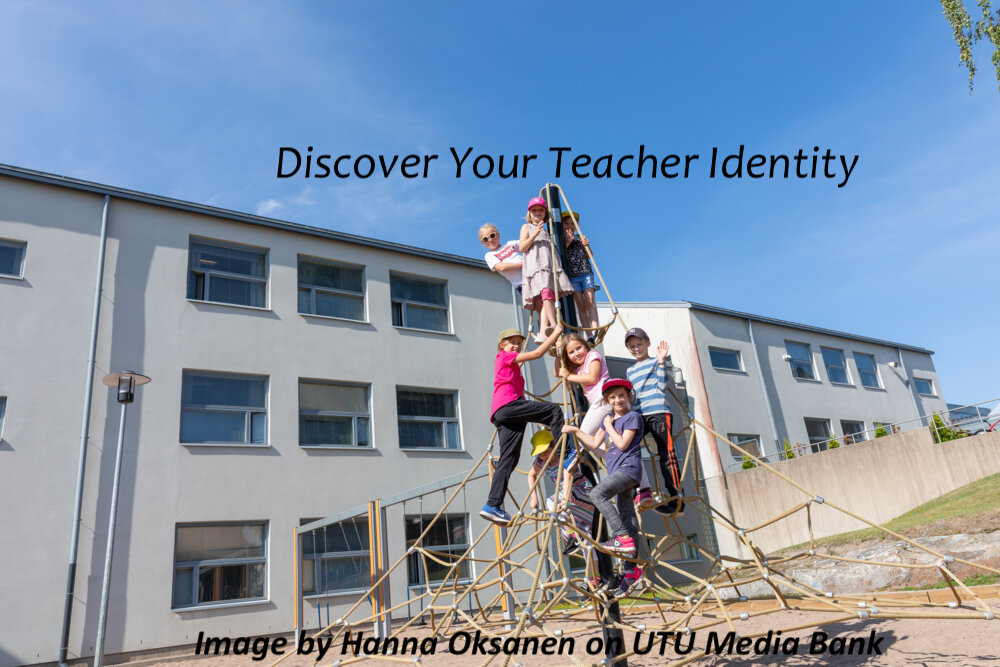
- Teacher
Maria Broholm
This English course
(2 credits) is offered to 3rd-year students in Class Teacher Education programme in groups LOR22a and LOR22b (OKL
Rauma), in the fall term 2024.
This course is offered to students who have completed KIEN2761 English: Academic and Professional Skills for Education I. Please first enroll on Peppi.
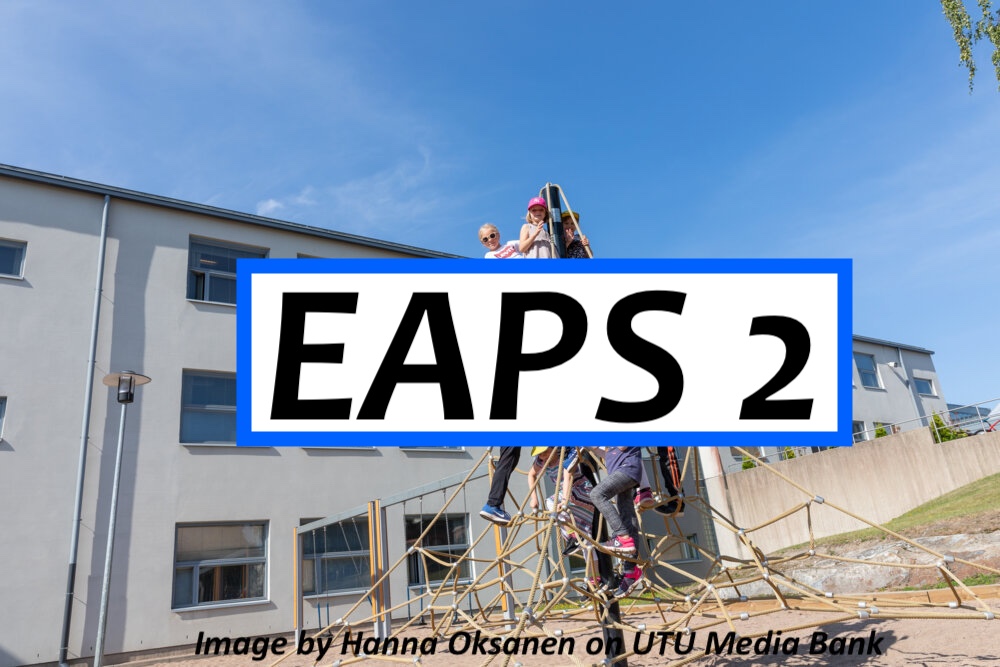
- Teacher
Maria Broholm
This English course (2 credits) is offered to 3rd-year students in Class Teacher Education programme in groups LOR23a and LOR23b (OKL Rauma), in the fall term 2025.
This course is intended for students who have completed KIEN2761 English: Academic and Professional Skills for Education I. Please first enroll on Peppi.
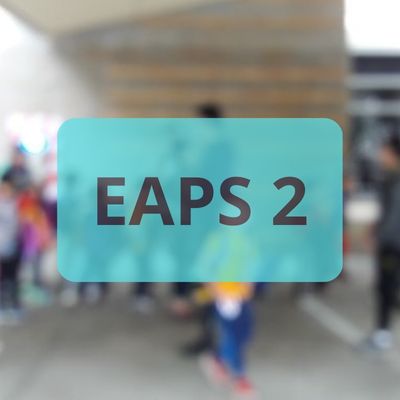
- Teacher
Maria Broholm
This English course (2 credits) is offered to 2nd-year students in Early Childhood Teacher Education programme in groups VO23a, VO23b, VO23e, VO24eh1, VO24eh2 (OKL Rauma), in the academic year 2024-2025.
This course is intended for students who have completed KIEN2761 English: Academic and Professional Skills for Education I. Please first enroll on Peppi.
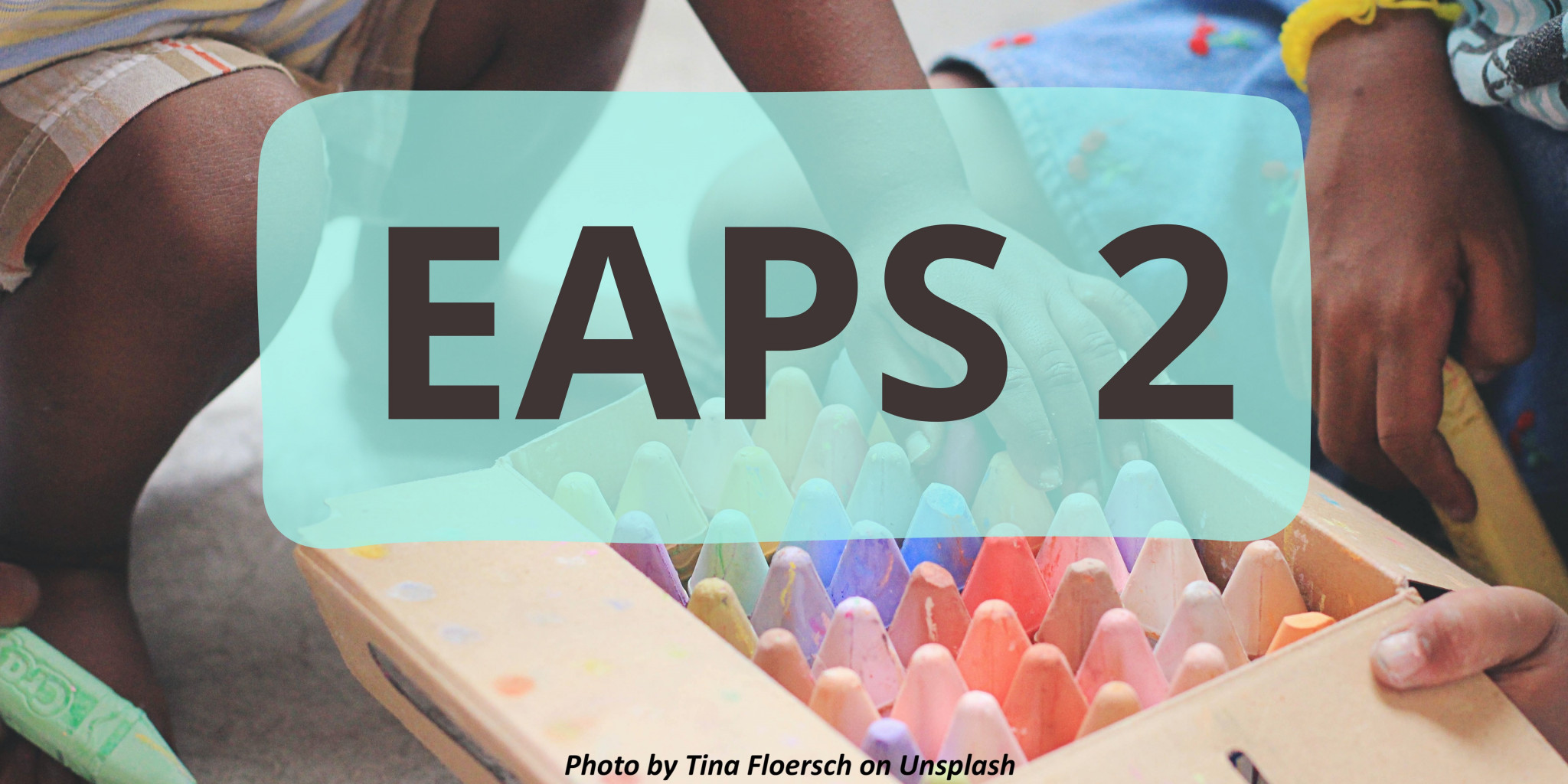
- Teacher
Maria Broholm
- Teacher
Silja Keva
It is for thesis evaluation for plagiarism.
- Teacher
Yoko Demelius
- Teacher
Heejin Kim
Objectives
When completing this course, students will understand the key issues and concepts of Japanese contemporary politics and society and understand the major historical developments, trends and connections behind them. As for transferable skills students learn to analyse complicated and often interrelated phenomena, to read and utilize academic research, to reflect on their learning, to form arguments and present their findings in a team presentation. Students will also learn communication skills, teamwork skills, time management and presentations skills as well as academic English reading and speaking skills.
- Teacher
Silja Keva
This course is a continuation of Upper-intermediate Korean II. Students will be able to understand everyday language and can interact with a degree of fluency and spontaneity that makes regular interaction with native speakers quite possible without strain for either party. They can produce clear, detailed text on a wide range of subjects and explain a viewpoint on a topical issue giving the advantages and disadvantages of various options. They will also be able to understand and differentiate written and spoken language based on their distinctive basic characteristics.
Through various instructional materials, students will deepen their understanding of upper-intermediate grammar, vocabulary, pronunciation, conversation, reading, listening, writing, and culture. Topics covered include university life, working life, solving problems, talking about appearance and character, visiting government agencies, discussing cultural differences using upper-intermediate level expressions etc.
The course corresponds to level B2.1 of the CEFR (Common European Framework of Reference for languages) and level 3 of TOPIK (Test of Proficiency in Korean).
- Teacher
Taru Salminen
Students will become familiar with classic East Asian films and the contexts of their production, including regional political, socio-economic, and cultural histories. They will learn to apply various methods of critical analysis on films and other texts by focusing on structure, semiotics, composition, and historical context. By the end of the course, students will be able to identify various developments, tropes, issues, and characteristics of classic films of East Asia.
Transferable skills include the ability to critically assess and synthesize information from a variety of primary and secondary sources; to clearly and convincingly articulate arguments with supporting evidence; and to develop strong academic English comprehension and communication skills.
- Teacher
Satoko Naito
The course aims to help students to gain a better understanding of the various ways in which welfare policies have evolved in East Asia in order to be able to engage critically with the debates and challenges surrounding the current East Asian welfare regimes. Completing the course will therefore allow students to learn:
1. The key concepts and competing theoretical perspectives in the main social policy sectors in East Asia: social security, education, health, housing, the labour market
2. The overall historical, economic, social, and political contexts in which social policies are made and implemented as well as their specific outcomes
3. How the provision of welfare policies in Asia work and may be improved from a comparative perspective in the context of recent global social policy developments
This course will also give students a chance to develop further their critical thinking skills, their ability to gather information as well as to identify evidence-based arguments, and to articulate their thoughts with greater clarity, concision, and analytical precision.
- Teacher
Hermann Aubié
Students will become familiar with ethnography from three perspectives: 1) a data collection method, 2) a reflexive tool, and 3) a narrative as a data set. They will learn a variety of conventional and latest ethnographic techniques to accommodate contemporary contexts in East Asia and beyond. Students will identify various ways of approaching ethnography in conducting research and writing a thesis. They will acquire skills in a) approaching and engaging in social situations for ethnographic research and b) critically analysing and interpreting acquired field data.
This course enhances students’ qualitative data collection and analytical skills by paying particular attention to the fast-changing world and class participants’ own topics and academic interests. The course should be taken during the second semester of the programme before commencing fieldwork.

- Teacher
Yoko Demelius
Goals: The course offers an introduction to the wide range of issues in the field of East Asian studies. Contents: What is East Asia? How has it come about in history? How has the West influenced the region? What is the significance of different conceptualisations about East Asia?
- Teacher
Lauri Paltemaa

